Estimating effects of the AfCFTA in Tanzania: Application of Poisson Pseudo Maximum Likelihood
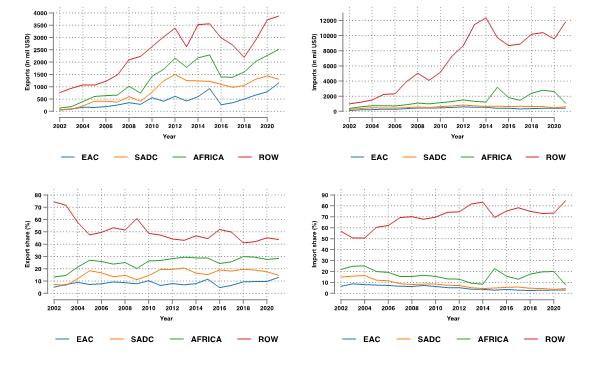
Using bilateral trade data for 157 countries and applying a General Equilibrium Poisson Pseudo Maximum Likelihood (GEPPML) model, we estimate the effects of the African Continental Free Trade Agreement (AfCFTA) on Tanzania’s trade/exports and welfare. The baseline estimates on the international border suggest that all else equal, the international border decreases trade by 97 percent. […]
World Trade Organisation members’ compliance with article XXIV of the General Agreement on Tariffs and Trade: The case of Tanzania
WTO provides the bedrock of international trade law. Thus, it supports open and predictable trade. Regional trade arrangements have become an accepted channel for trade development, consequently, they are recognised by WTO under article XXIV of GATT and the Enabling Clause. Most RIs are brought about by regional trade arrangements. The most common forms of […]
Public debt and private sector financing in Tanzania
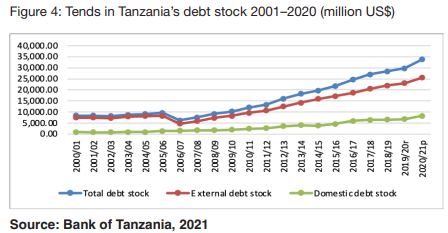
Public debt is an important macroeconomic policy area of interest for governments, researchers and academia. This study investigates its impact on private sector financing in Tanzania. Firstly, it discusses the evolution of public debt since independence, focusing on the legal and policy framework for its management and the debt relief strategies adopted. Secondly, it looks […]
Role of innovation and technology upgrading on industrial and export competitiveness in Tanzania
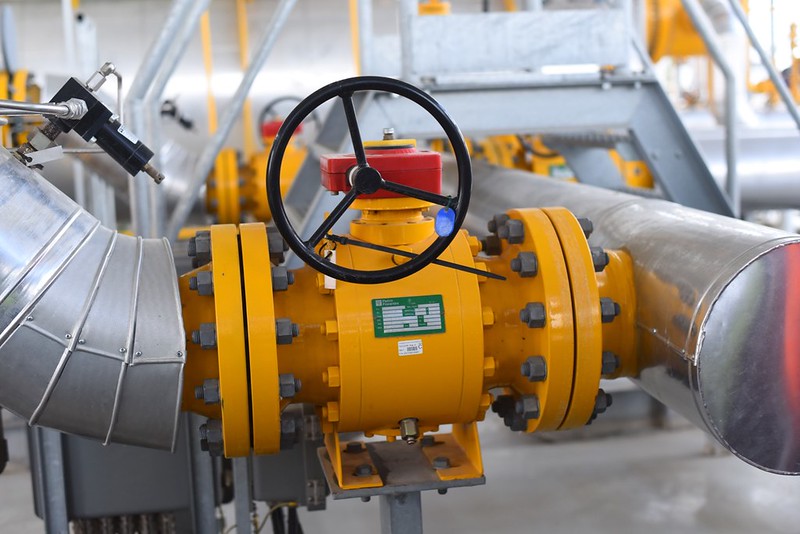
This study aimed to examine the role of innovation and technology upgrading (ITU) in the competitiveness of Tanzania’s industrial and export sectors. To achieve this objective, the study was structured as three complementary components. The first component focused on assessing the current status and trends in the technology and innovation profile through a situational analysis. […]
Public Expenditure Review of the Health Sector (2015–2018) – Primary Health Care
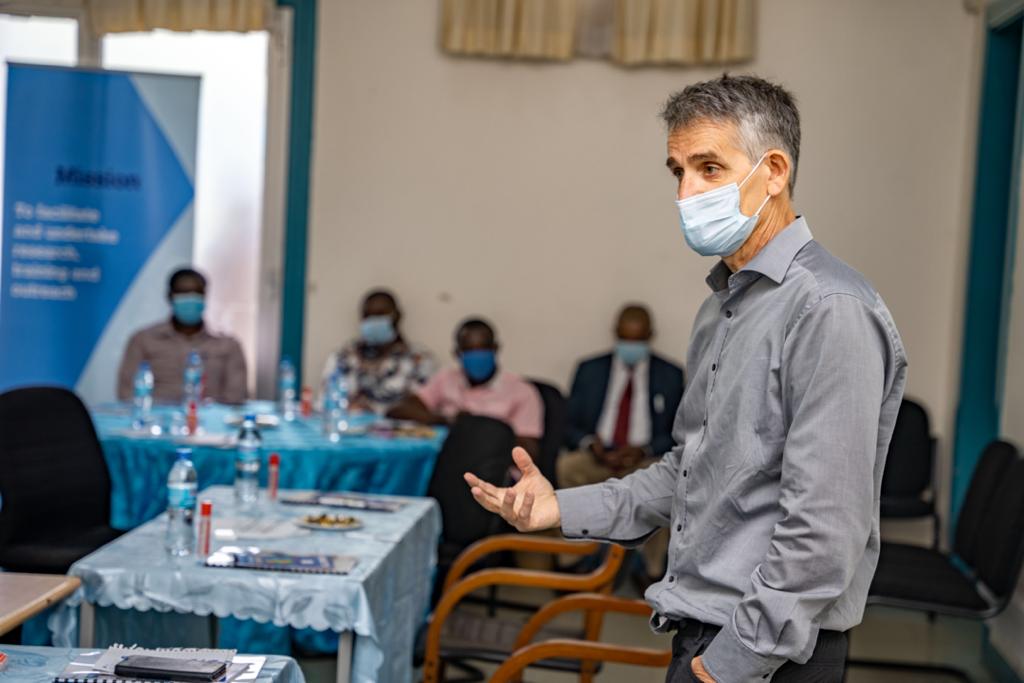
This report, among others, provides a review beyond the conventional health sector public expenditure reviews by: It is envisaged that the analysis and insights from this report will inform future policy formulation, planning and budgeting in the health sector. Read the full report below…
Business Climate Survey of Nordic Countries, 2022-23
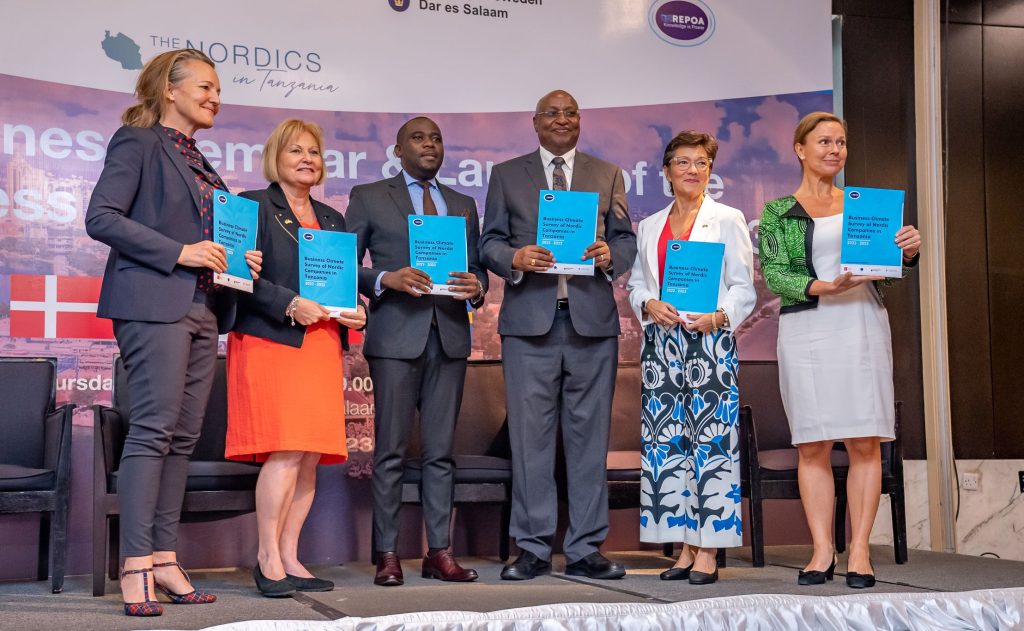
The 2022-23 Business Climate Survey for Nordic Companies in Tanzania is a joint initiative of the Embassies of Denmark, Finland, Norway, Sweden and REPOA. The survey is based on a mixed methods assessment of firms drawn from a non-probability sample of 99 firms operating in Tanzania mainland and Zanzibar. The survey was carried out between […]
Concerns over sovereignty of development finance: Tanzanians want local solutions and local control
On this Policy Brief, the findings as picked from the Afrobarometer Survey Round 8 reveal that Tanzanians value more independent pursuit of development than conditional foreign financing. REPOA is Tanzania’s Afrobarometer country partner. The following are the key policy recommendations: Please read the full details of this Afrobarometer survey related brief just below…
A better budget process in Tanzania: A strategy for Public Financial Management & Accountability
This policy brief examines the political economy in which informal power, political structures, and incentives influence public financial management and accountability (PFMA) reforms, the budget process, and public expenditure in Tanzania. A number of challenges face the current traditional revenue collection process in Tanzania and to underscore opportunities that can enhance revenue collection. Among the […]
The monetary cost of complying with employment regulations: The experience from the hotel industry
This Policy Brief highlights the associated monetary cost of complying with employment regulations: The experience from the hotel industry in Tanzania. As stated by the International Finance Corporation (IFC) and World Bank (2012), if compliance costs are high in a country, policymakers need to know which regulatory regimes cause most of the burden to businesses […]
The time and monetary costs of regulatory compliance: The experience from the hotel industry
This Policy Brief highlights the associated time and monetary costs of regulatory compliance – the experience from the hotel industry in Tanzania. In the quest to address the highlighted compliance cost challenge, REPOA offers the following Policy Recommendations: Ready the full details just below…
Business Climate Survey of Nordic Companies in Tanzania, 2022-23

The Business Climate Survey for Nordic Companies in Tanzania is a joint initiative by the Embassies of Denmark, Finland, Norway, Sweden, and REPOA. Business Climate Surveys are published regularly in several markets across the world. This is a follow-up survey from that conducted in 2019 aiming to further our understanding of the performance of Nordic […]
Gender balance in Tanzania: Successes and Challenges
This policy brief highlights successes and challenges in the promotion of gender equality in political, social, and economic aspects in Tanzania. It argues that it is not possible to attain gender balance without knowledge of the existing status quo on the promotion of gender equality. This brief uses data from the Demographic & Health Survey, […]
Women’s Empowerment in Tanzania: Predictors of Women’s Ability to Control their Income
This policy brief explores on women’s empowerment in Tanzania: Predictors of women’s ability to control their income. The brief has it that a few women (12%) decided on how to spend their money independently, and that a large proportion of women (88%) made joint spending decisions with their spouses. It finds out that women with […]
Tax Capacity and Effort in Tanzania
This policy brief explores on tax capacity and effort in Tanzania. The brief has it that Tanzania is utilizing less than half its potential tax capacity. Not only does the income tax category has more potential than the other tax categories but also has the lowest effort in tax revenue collection. It also underscores that […]
The Performance of Tax Revenues in Tanzania: An attempt at explanation
This policy brief explores on the Performance of Tax Revenues in Tanzania. The brief has it that the performance of Tanzania’s Tax revenue collection is below the recorded averages in Sub- Saharan Africa, SADC, and East Africa. Income tax and VAT jointly contribute around two-thirds of the country’s tax revenues. It also explores that the […]
Should Tanzania be concerned about its budget deficit?
This policy brief explores on Tanzania’s budget deficit as it rose 15-fold from TZS 0.4 trillion to TZS 6 trillion between 1999/00 and 2020/21. The brief has it that generally, the budget deficit has been financially manageable as the country’s debt service has not exceeded the economy’s ability to continuously fund it. However, the consequences […]